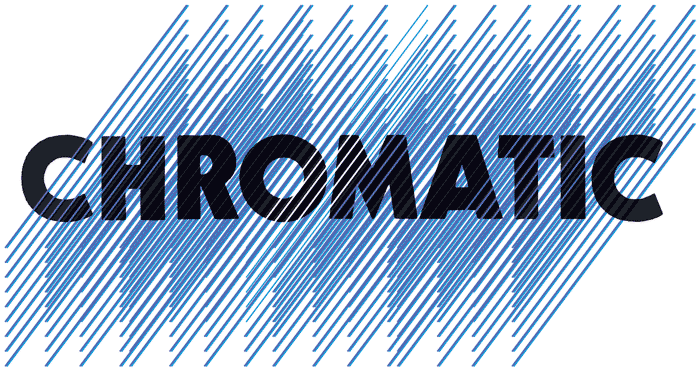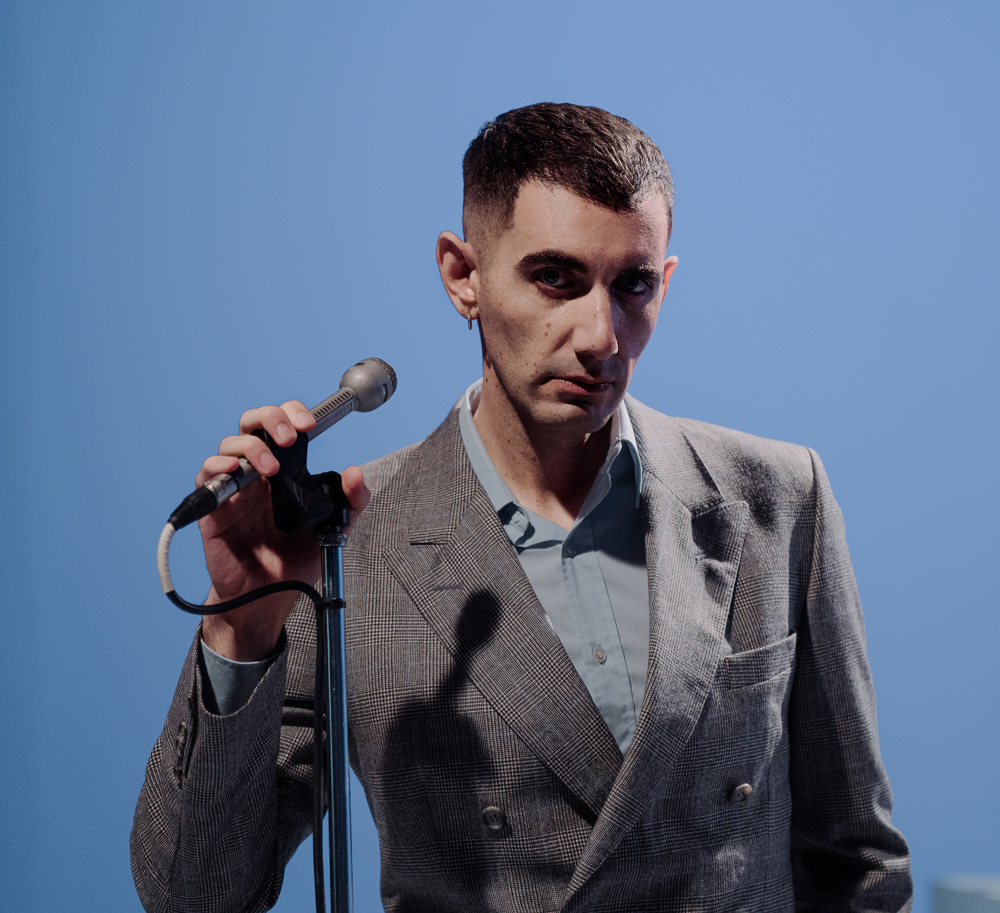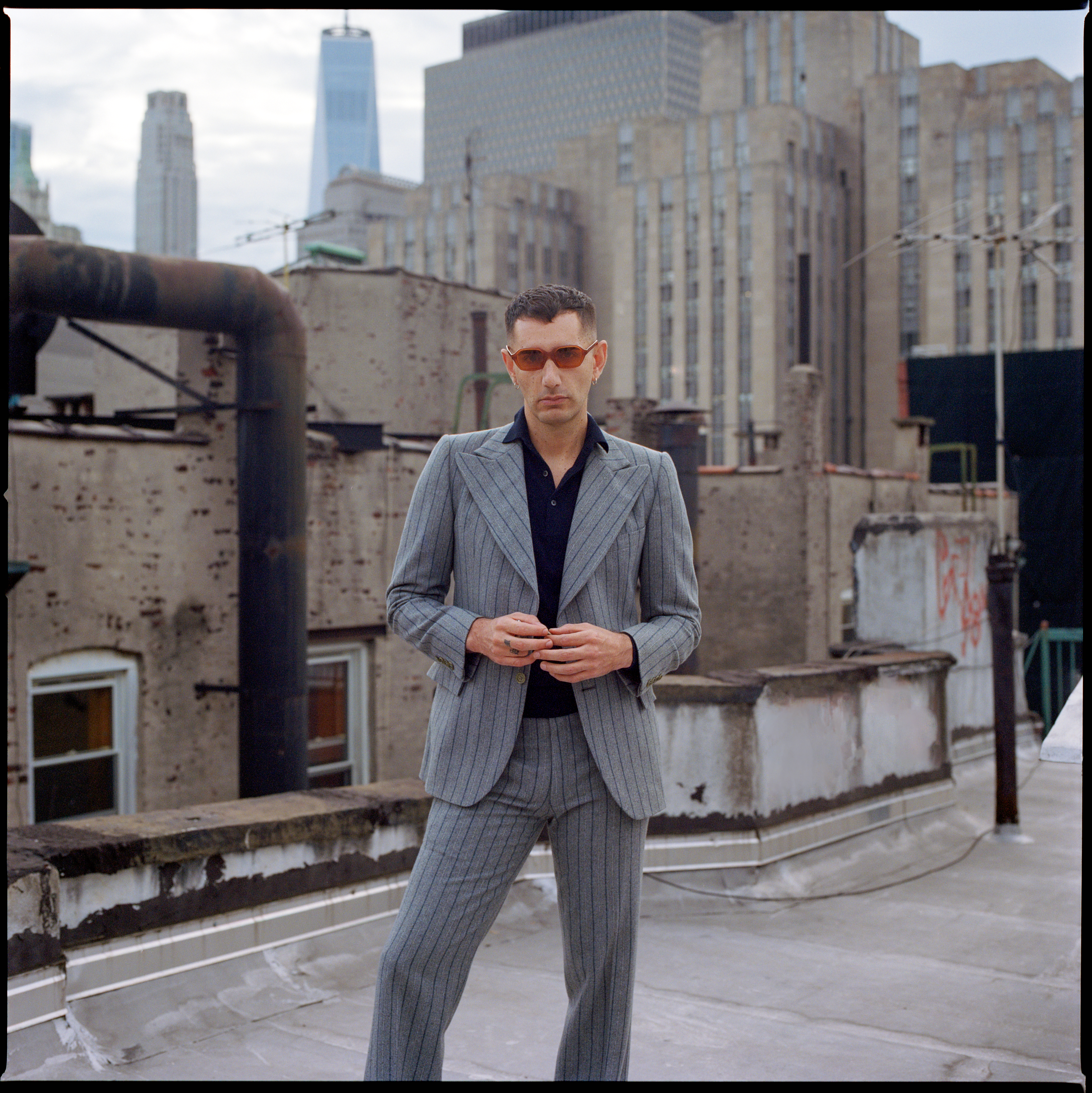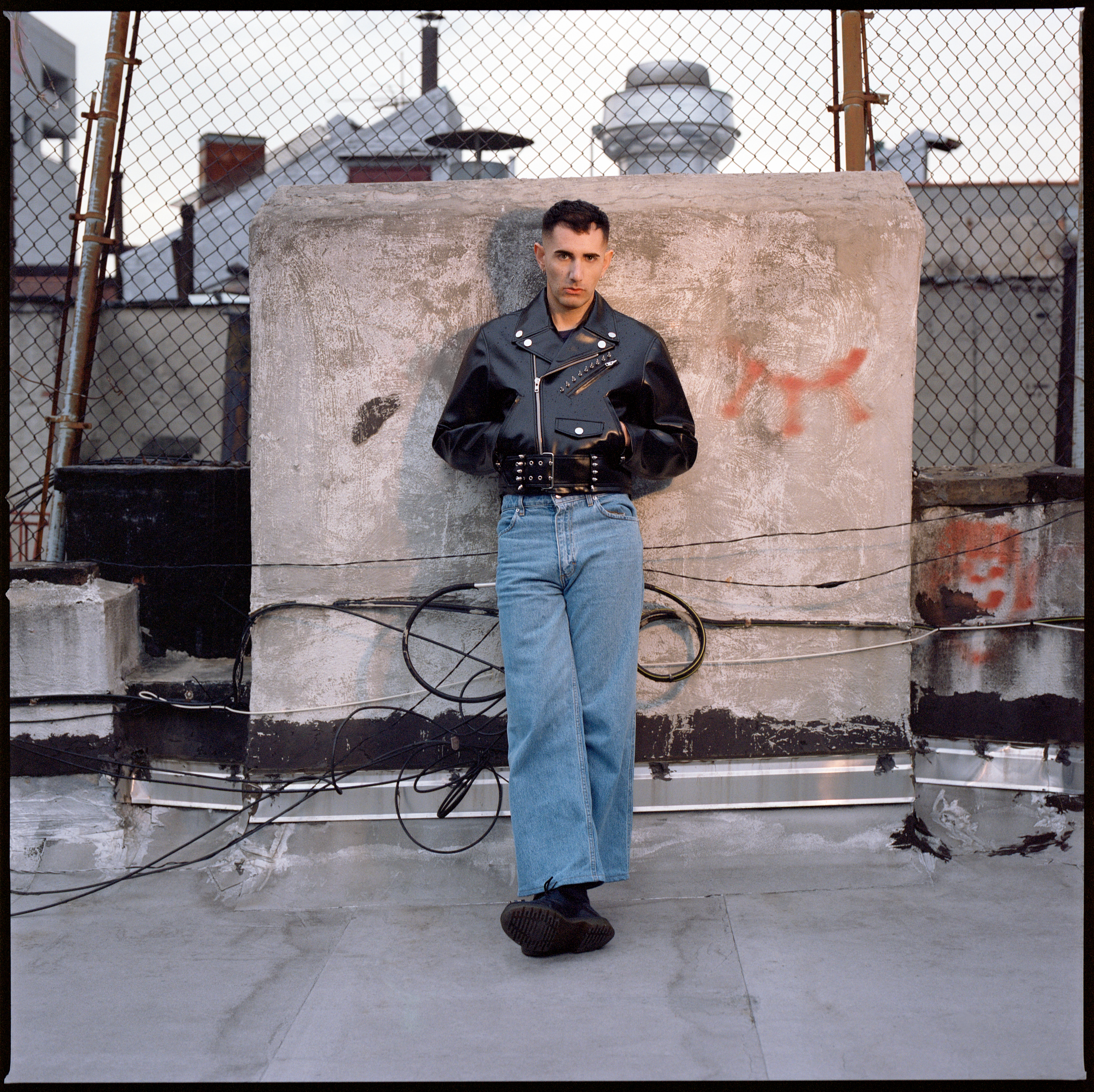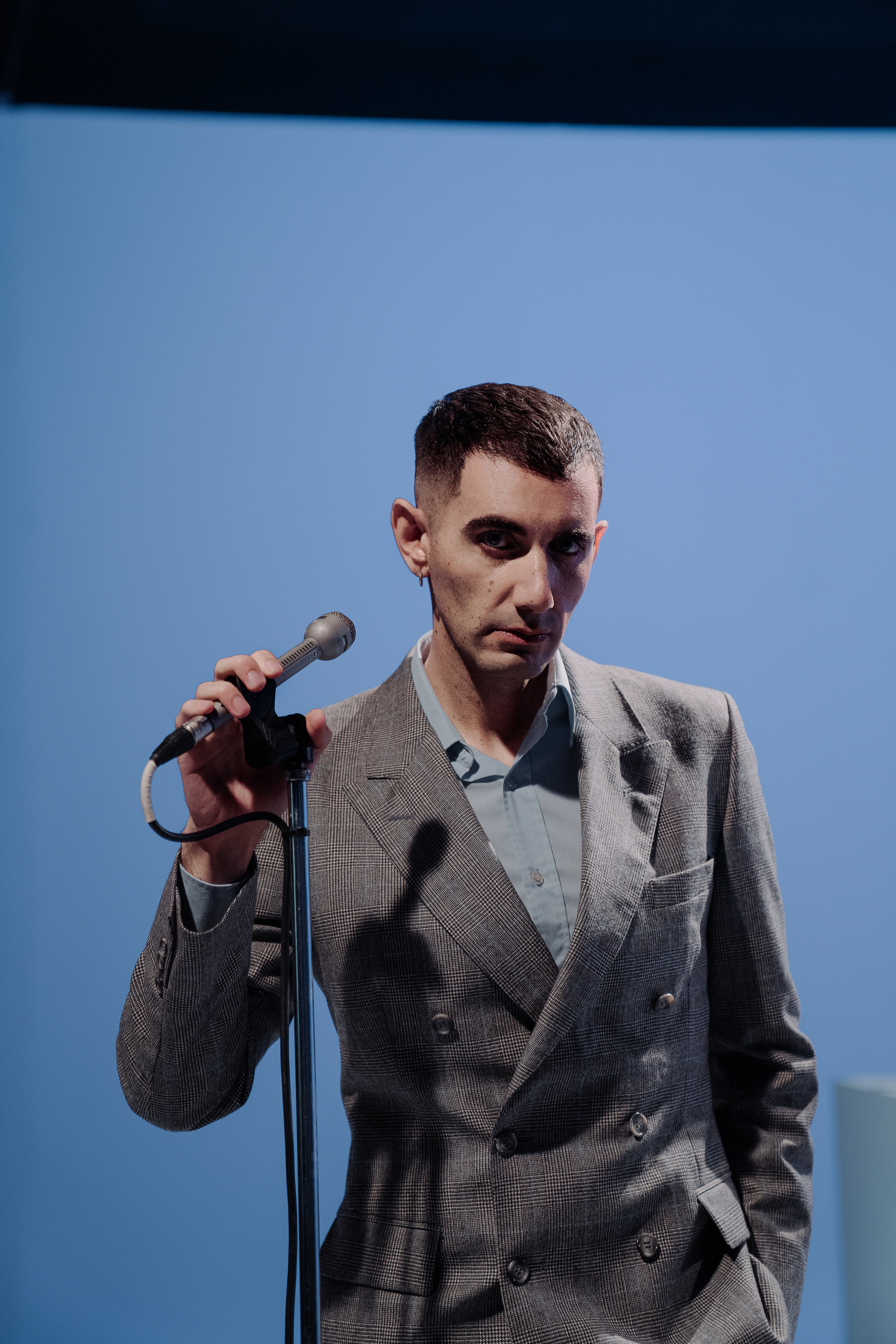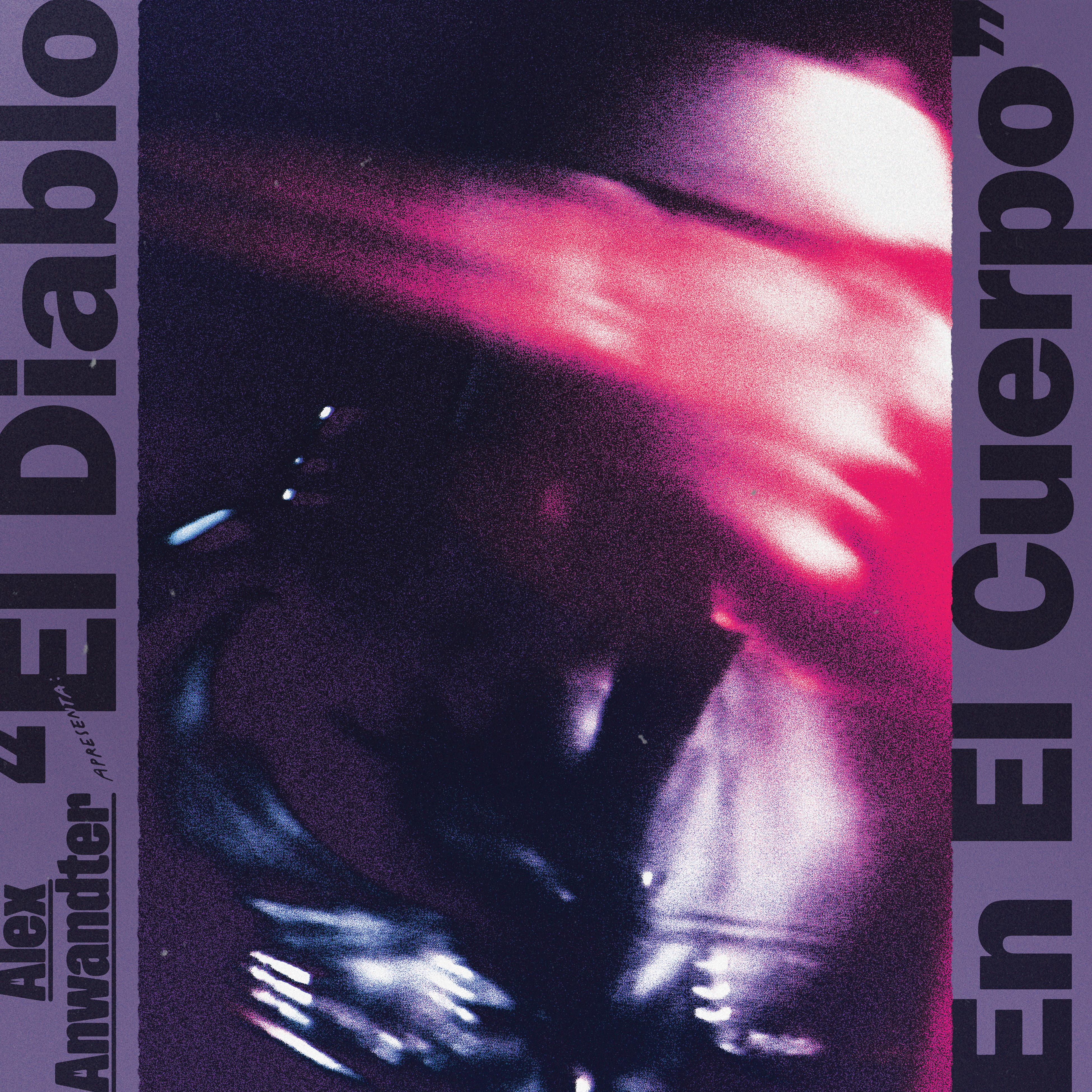ALEX ANWANDTER
Alex Anwandter – Bio
El diablo en el cuerpo out May 26, 2023
On his new album El diablo en el cuerpo, Chilean singer/songwriter Alex Anwandter offers up a wildly extravagant form of dance music built on larger-than-life emotion: all-consuming desire, burning infatuation, heartbreak so exquisitely brutal it turns transcendent. Over the course of 16 ornately detailed tracks, the New York City-based artist matches that unrestrained feeling with his elegant yet adventurous sense of composition—once again tapping into the sophisticated musicality that’s earned him three Latin Grammy Award nominations, including a Best Alternative Album nod for 2018’s critically acclaimed Latinoamericana. Anwandter, in the tradition of pop iconoclasts like Prince, hits every pleasure center while exploring infinitely complex matters of the heart and mind and soul—ultimately turning El diablo en el cuerpo into a dazzling meditation on queer life and love.
“One thing I enjoy is using my songs as vehicles for my ideas on what’s happening in the world—like, for example, how homophobia is still so pervasive and has the very concrete effect of making people feel isolated,” says Anwandter, whose past work also includes 2016’s two-time Latin Grammy-nominated Amiga. “At the same time, it’s a way for me to capture different emotions and explode them into something bigger: to create some kind of alchemy and make those feelings as intense as possible, so that I can understand them better and then free myself of them.”
El diablo en el cuerpo, Anwandter’s self-produced fifth solo full-length, first took shape in the early days of lockdown. “I was alone in my studio and all I could hear were ambulance sirens, and at first I thought I’d make something very introspective,” he recalls. “But instead what came out was mostly dance songs—which was strange, because I ended up spending a lot of time dancing by myself in order to verify that the songs were actually danceable.” Anwandter drew from his voluminous musical vocabulary across the album, mining inspiration from such eclectic sources as proto-synth-pop, the avant-garde disco of Arthur Russell, Marvin Gaye’s 1976 quiet-storm classic I Want You, Latin ballads, Brazilian pop, and post-romantic classical music. A near-lifelong musician who got his start playing violin at age six (thanks in part to the influence of his father, a classical guitarist), Anwandter also shaped El diablo en el cuerpo’s maximalist sound with the help of a Buenos Aires-based orchestra, an extensive lineup of female backing vocalists, and guest musicians like Argentine drummer Mati Verduga; in addition, the album includes features from legendary singers Christina Rosenvinge and Julieta Venegas (whose 2022 LP Tu Historia was produced by Anwandter). “Because dance music is such a collective experience, it was important for this album to have lots of collaboration,” he says. “Getting other people’s energy into my music felt really good, and it’s something I definitely want to keep doing in the future.”
El diablo en el cuerpo is rooted in Anwandter’s vision of dance culture as a “world where you can become who you really want to be,” and takes its title from a darkly hypnotic track encapsulating the album’s seamlessly intertwined themes. “The title translates to ‘The devil in the body,’ which ties into the idea of moving with the body, connecting with the body, communicating with the body,” he says. “It’s also related to the other grand theme of the record, which is desire and what happens when you give yourself over to it.” Referring to the album’s lyrical component as more libidinal and instinctual than his previous output, Anwandter opens the album on “Maricoteca:” a synth-heavy and sensually charged track that channels the untouchable euphoria of surrendering to the dancefloor, its rapturous mood magnified by an all-female chorus of gang vocals. “There’s a line in the song that says ‘We’ve got plans for you,’ and I liked the idea of having a bunch of people singing that altogether,” Anwandter points out. “It’s sort of mocking the whole idea of the gay agenda—like, ‘We’re coming to take over the nuclear family, and pervert everything you know.’”
All throughout El diablo en el cuerpo, Anwandter fully leans into the over-the-top emotionality of classic disco (“There’s something about facing your deepest troubles by disco dancing that I find very appealing,” he notes). Hard-hitting house beats bring an irresistibly moody intensity to the outpouring of romantic angst on “Qué piensas hacer sin mi amor?.” “I wrote that in a moment of feeling spiteful about a certain situation,” Anwandter reveals. “I love how the pulsating, incessant energy of house fits perfectly with super-dramatic lyrics.” On “Precipicio,” he sets the track’s bittersweet lyrics against a glittering backdrop of exuberant horns and shimmering piano and gloriously strutting grooves. “That song came to me in the early months of pandemic when it felt like the world was going to hell,” he says. “I always find contrast interesting in music, so instead of writing a sad ballad I made it into a disco banger about how we’re all in this together.” Puerto Rican synth-pop band Buscabulla join Anwandter on “Mi vida en llamas” for a heavy-hearted yet heavenly track graced with warm saxophone tones and gorgeously swooning strings.
As El diablo en el cuerpo unfolds, Anwandter threads a number of songs with what he refers to as “commentaries on how desire clashes with social conventions of what romantic love should be like.” On “Unx de nosotrxs,” for instance, fellow Santiago-born musician Javiera Mena lends her spellbinding vocals to an achingly lovely yet powerful homage to growing up queer in Chile. “Javiera and I are both queer artists from Chile, so I feel a special partnership with her,” says Anwandter. “In that song I let myself be a bit nostalgic about how silly we all were, and how it was both fun and painful to grow up together in that time.” Meanwhile, on “Ahora somos dos,” fluttering synth loops and brightly throbbing beats merge in a tender reflection on loneliness and liberation. “For me ‘Ahora somos dos’ is one of the more important songs on the album,” says Anwandter. “The lyrics are very heartfelt and capture how lonely being queer can be within your own family, and how that moment of finding someone like you and falling in love can feel like you’re saving each other.”
Elsewhere on El diablo en el cuerpo, Anwandter brings his nuanced songwriting to such emotionally layered tracks as “Pueblo fantasma” (a tribute to a friend who died from HIV/AIDS complications), “Vamos de nuevo” (a love song written while visiting his home country in 2019 and participating in the protests against social inequality), and “Balada de la impunidad” (the album’s only explicitly political song, speaking to Chile’s “terrible track record on holding its oppressors to account”). Anwandter’s choice to create such an all-embracing body of work emerged from the very same sense of unbridled freedom embodied throughout the album. “At first I was trying to cut some songs, but then I realized some of my favorite albums are very expansive and fearless in their approach to genre,” he says, naming the self-titled 1972 double album by Brazilian collective Clube da Esquina as his most enduring musical inspiration. “All of these songs felt essential, even if they sometimes explore different territories. So instead of chopping up something that’s whole, I decided, ‘This is what I have to express—why I would ever try to limit myself?’”
